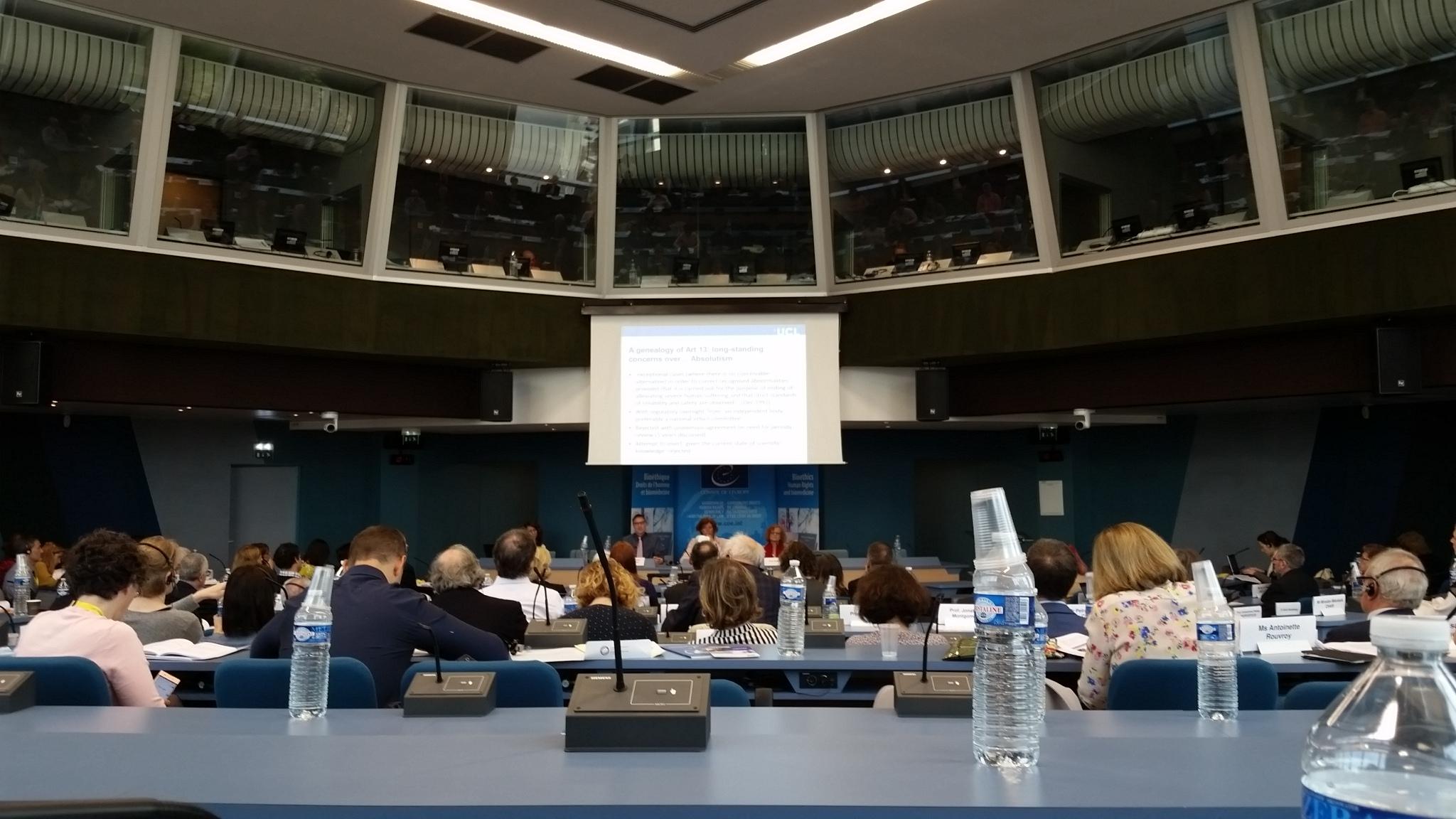CGS at the Oviedo Convention’s 20th Anniversary

This year marks the 20th anniversary of the Oviedo Convention, the only international, legally binding treaty for human rights protection in the biomedical arena. On October 24 and 25, approximately 100 to 150 people from intergovernmental, academic, and nonprofit sectors from across Europe and other countries gathered in Strasbourg, France, for an international conference
Also known as the European Convention on Human Rights and Biomedicine, the Oviedo Convention includes a provision that effectively bans human germline modification for reproduction. Article 13 of the Convention states that “an intervention seeking to modify the human genome may only be undertaken for preventive, diagnostic or therapeutic purposes and only if its aim is not to introduce any modification in the genome of any descendants.”
I attended the conference to support the international arm of the Center for Genetics and Society’s current campaign on germline modification and genetic justice. Of particular interest was the conference panel on germline modification, which took place the morning of the second day. Chairing the panel was Council of Europe’s Parliamentary Assembly member Dr. Petra de Sutter of Belgium. Notably, De Sutter co-authored the Parliamentary Assembly’s Recommendation 2115, “The use of new genetic technologies in human beings,” which was recently adopted by the Assembly on October 12. The document significantly recommends that the Committee of Ministers urge member states that have not yet ratified the Oviedo Convention to do so, or at a minimum instate a national ban on establishing a pregnancy with germ cells or embryos that have undergone genome editing.
The panel’s two invited speakers were Jonathan Montgomery, professor at the University College London, UK, and member of the European Group on Ethics in Science and New Technologies at the European Commission, and Ewa Bartnik, professor at the University of Warsaw, Poland, and member of the International Bioethics Committee of UNESCO.
Given the venue, it was surprising that both speakers argued in favor of lifting the Convention’s ban on germline modification for reproduction. Montgomery claimed that the original intention of the ban was temporary, and should therefore be revisited in light of new technological developments to avoid “crystallizing things that may hold us back.” He asserted both that patients have a right to this technology, and that he does not believe a ban will hold in the UK. Bartnik took an individual rights perspective similar to Montgomery’s, asserting that patients have a right to germline gene editing, and stressing that since enhancement is not currently possible, it simply isn’t an issue.
Audience members were skeptical. One bioethicist questioned Montgomery’s assertion about the Oviedo Convention’s original intention. Another brought in a disability rights perspective, highlighting the danger to fundamental human equality that the non-identity dilemma poses: namely that by gene editing embryos, one would be creating a person fundamentally different from who would otherwise have existed. Other audience members asserted that focusing on individual rights is insufficient for this issue, stressing that when considering germline modification for reproduction, communal rights and potential social harms are essential to take into account.
Given the ongoing global conversation about human germline editing, the Oviedo Convention is a key policy touchstone. While the anniversary event demonstrates that some are dissatisfied with the Convention’s stance, it also makes clear that support for banning germline modification remains strong at the Council of Europe.



